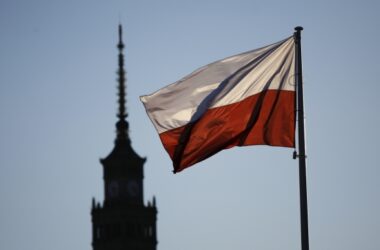Antal Rogán, Hungary’s secret service chief, found himself at the center of international controversy after U.S. sanctions were imposed on him earlier this January over alleged corruption charges. Yet, Prime Minister Viktor Orbán wasted no time defending him, framing the sanctions as validation of Rogán’s role in safeguarding Hungarian sovereignty.
“Rogán is responsible for national security and is the primary defender of Hungarian sovereignty. If a global power punishes him, he is doing his job effectively. That’s our perspective,” Orbán remarked during a January 17 state radio address.
This marked Orbán’s first public response to the sanctions, which his government dismissed as the “final, petty revenge” of a departing U.S. ambassador. Despite the sharp rebuke, Orbán’s sights seem set on brighter prospects for U.S.-Hungary relations under the incoming Trump administration, expressing optimism for a “golden era.”
U.S.-Hungarian Relations: A Rocky Road
The relationship between Hungary and the United States has been anything but smooth, shifting between cooperation and tension depending on the administration in Washington. Under President Trump, ties grew closer, largely due to Trump’s appointee, David Cornstein, who openly supported Orbán’s nationalist policies. This stance, however, ruffled feathers among Democrats and left-wing critics, who viewed Orbán as a threat to democratic values.
By contrast, Orbán often butted heads with officials from Democratic administrations. During the Obama era, former U.S. Ambassador Colleen Bell criticized Hungary for eroding democratic institutions, leading to public clashes and a strained relationship. Orbán’s government frequently accused the U.S. Embassy in Budapest of meddling in Hungary’s internal affairs, further fueling the rift.
Now, with Trump poised to return to power, Orbán anticipates a shift in dynamic. He envisions a strengthened partnership rooted in shared goals like countering Russian and Chinese influence in Europe, while bolstering Hungary’s sovereignty and economic ties with the United States.
Ramping Up Rhetoric on Sovereignty
Facing mounting domestic challenges—including economic woes and a resurgent opposition ahead of the 2026 elections—Orbán has ramped up his rhetoric against what he calls foreign interference. He’s vowed to combat “foreign networks” he claims undermine Hungary’s sovereignty.
“It is time to dismantle the foreign networks that threaten Hungary’s national sovereignty and send them packing,” Orbán declared. “Hungary will likely be the first European country to expel the Soros empire—this is my clear objective for the year.”
For more than a decade, George Soros and his Open Society Foundation have been key adversaries of Orbán’s ruling Fidesz party. In 2017, Orbán’s government enacted stricter rules for foreign-funded NGOs, forcing them to disclose funding sources. By 2018, a prolonged feud with Orbán’s administration led to the Central European University—founded by Soros in 1991—relocating most of its operations from Budapest to Vienna.
Looking Ahead
Orbán’s remarks reveal his unwavering focus on sovereignty as a cornerstone of Hungary’s identity and strategy. With sanctions now targeting a top official in his administration, he’s seized the opportunity to cast Rogán’s predicament as evidence of a successful defense of Hungary’s independence. As Hungary and the U.S. gear up for a potentially renewed alliance under Trump, Orbán remains steadfast in his efforts to define Hungary’s future on its own terms.




